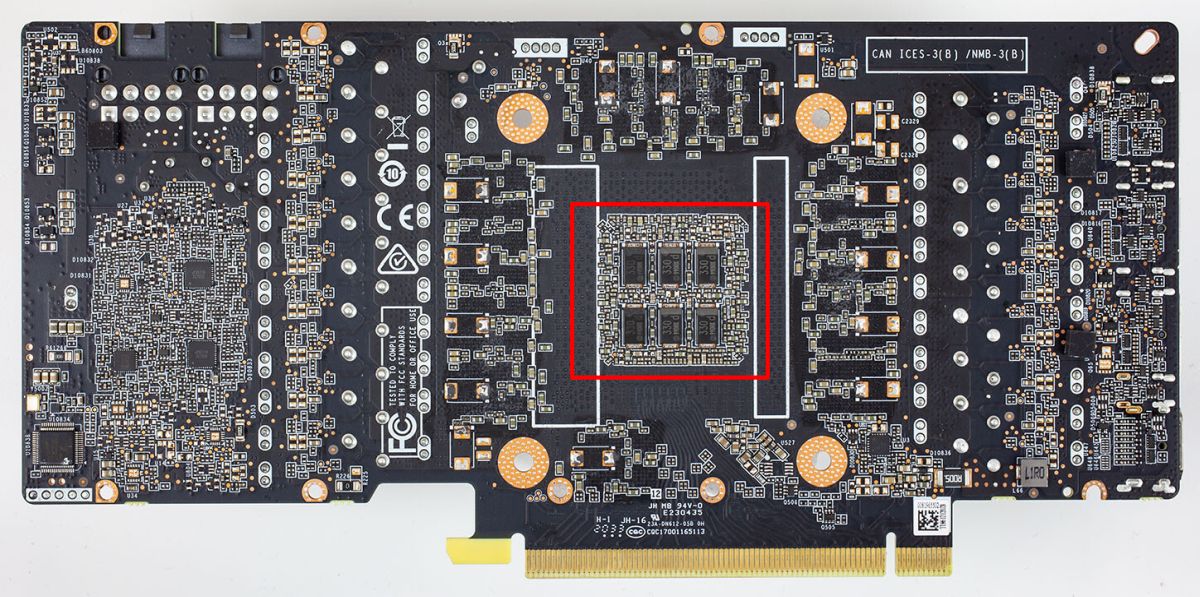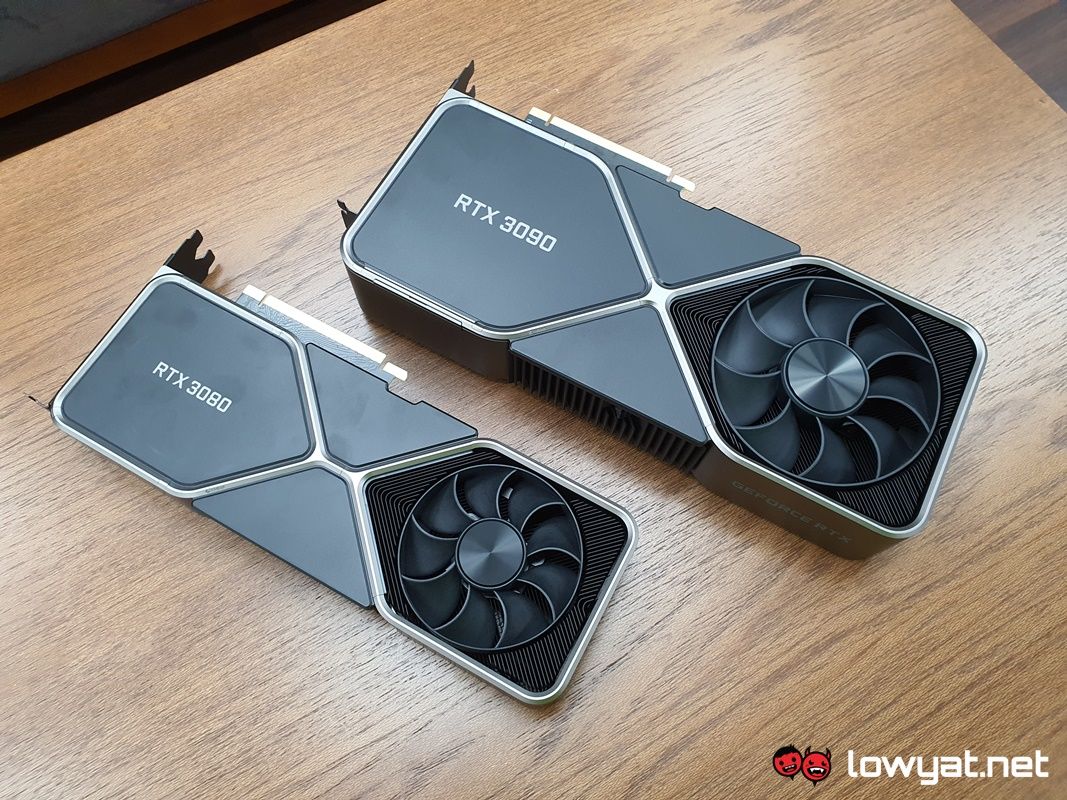If you’re planning on getting yourself one of NVIDIA’s new GeForce RTX 3080 but haven’t done so, you may want to hold off on that impulse buy for a while. Especially since new evidence that some AiB partner cards are suffering from Crash to Desktop (CTD) issues.
For the uninitiated, Crash to Desktop is when programs running on your PC unexpectedly and abruptly crash and simply taking you back to your desktop, without any warning. Why this happens can be attributed to a variety of reasons, but in this case, it’s the custom-cooled RTX 3080 graphics cards of NVIDIA’s AiB partners that have been determined as the cause.

Existence of the crashing issue was first brought to light by a user over at LinusTechTips, which was then picked up by the German-based sites ComputerBase and Igor’s Lab. The issue at hand here supposedly lies in the choice of capacitors that the brands use: Multilayer Ceramic Chip Capacitors (MLCCs) or Conductive Polymer Tantalum Solid Capacitors (POSCAPs), the latter capacitors supposedly being of lower quality and thus, being the cause of the custom RTX 3080 cards suffering from CTD issues. Whenever the PCBs hit clock speeds of 2GHz or higher, due to its low voltage ratings and less-than-stellar performance at higher frequencies.
That said, it’s not uncommon for a GPU manufacturer to mix-and-match these capacitors when constructing their card. Take NVIDIA, for example; its Founders Edition RTX 3080 and RTX 3090 utilises a hybrid of the two capacitors, specifically, a combination of two MLCCs and four POSCAPs. On that note, AiB partners like MSI also use the same capacitor ratio on its RTX 3080 Gaming X Trio, while brands like EVGA and Palit use a slightly different configuration with one MLCC and five POSCAPs.

Of course, there are brands that fully use one kind of capacitor or the other for their RTX 3080, such as ASUS and Zotac. In this case, ASUS’ ROG Strix and TUF Gaming series have gone the full monty with six MLCC capacitors, while Zotac’s RTX 3080 Trinity allegedly goes the opposite and uses six POSCAPs. The same goes for Gigabyte and its own RTX 3080 lineup.
At the time of writing, our GeForce RTX 3080 FE unit isn’t showing any signs of CTD, however, NVIDIA has yet to release an official statement regarding the issue. In any case, it also seems that the issue only appears to be affecting some, and not all AiB partner cards like Colorful and Zotac.
On a related note, both the brands have acknowledged that there is an issue with their cards and as such, they have launched their own independent investigation into the matter.
(Source: Videocardz, TPU, Igor’s Lab, YouTube [1] [2])
Follow us on Instagram, Facebook, Twitter or Telegram for more updates and breaking news.



